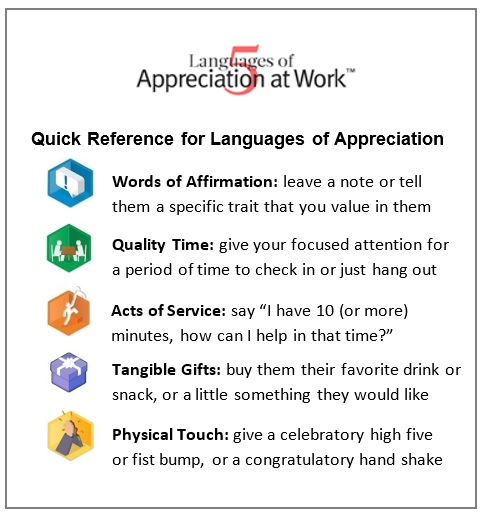Thanksgiving Is Actually Healthy For You: The Benefits of Gratitude
With the Thanksgiving holiday upon us, there are numerous columns and articles discussing various aspects of the holiday (almost too many!) But we would like to take the opportunity to bring attention to the overall benefits to our lives of having a thankful attitude. (This information may be some you want to share with others.)
In his bestselling book, What Happy People Know¹, Dr. Dan Baker (who is the director of the well-known wellness program at Canyon Ranch in Arizona) states that appreciation is the single most important tool in developing an enjoyable life. Additionally, social scientists who have studied the impact of stress on our lives cite a mental attitude of thankfulness as one of the best ways to manage stress.² Gratitude has also been linked to improvements in physical health such as lower blood pressure; longer, more restful sleep; and being less bothered by aches and pains. The benefits of gratitude may be due to the neurotransmitter dopamine,³ which is associated with mood regulation, sleep regulation and mental focus. Moreover, because dopamine is a “reward” neurotransmitter,4 increases in it make you more likely to do the thing you just did: it’s like a “gratitude snowball effect” where you seek out more good things to appreciate.
Gratitude has three main components:²
1) An affirmation of the goodness in your life: that there actually are good things in this crazy mixed-up world. Always focusing upon the negative, or the things you don’t like can be discouraging. Yet, taking some time to focus upon the good things from your day can instantly improve your mood. Living in a thankful, appreciative way — daily, hourly, moment by moment — can truly enhance the quality of our lives.
2) Figuring out that the sources of goodness at least partially come from outside ourselves. Friends, family, colleagues, and even random strangers give us gifts – big and small – that bring a smile to our faces and make our lives a little better.
3) Expressing appreciation for the good things that someone did for our benefit. This involves taking a moment from our day to reflect upon the good thing, and the time, skills, and/or financial investment required behind it. Then, doing something to let the person know you appreciate them.
How to Cultivate Gratitude
Research5 has shown that individuals who track things daily they are grateful for show greater determination, attention, enthusiasm, and energy compared to those who don’t practice this discipline. The same research found that even a weekly gratitude journal showed increases in optimism.
 To make it easy, there are even free gratitude apps you can download that send you a push notification prompt to log the good things that happened in your day. Even without an app, you could pick one day per week to focus upon gratitude. Since Thanksgiving is on a Thursday, maybe you can start a new tradition “Thankful Thursday” in which you are intentional about showing gratitude every Thursday.
To make it easy, there are even free gratitude apps you can download that send you a push notification prompt to log the good things that happened in your day. Even without an app, you could pick one day per week to focus upon gratitude. Since Thanksgiving is on a Thursday, maybe you can start a new tradition “Thankful Thursday” in which you are intentional about showing gratitude every Thursday.
What are some of the things you are thankful for in your friends, family and colleagues? Are they a good listener? Thoughtful? A good cook? Give good hugs? Great at planning events? Fun to be around? Dependable? Hard working? Have an eye for detail? Smart? Generous? Funny? Patient? Have a unique talent? Do they inspire you?
Once you identify the good thing in your life and the person responsible for it, take steps to display your appreciation. Because each person has a unique language that speaks true appreciation to them, here are some suggestions to try.
We would encourage all of us to use this holiday week of Thanksgiving to set aside some time, both individually and with our family and friends, and reflect on the blessings we have in our lives. And share those thoughts with others.
A positive approach to life can be contagious!
1) Baker, Dan, and Cameron. Stauth. What Happy People Know : How the New Science of Happiness Can Change Your Life for the Better. Rodale, 2003.
2) Emmons, Robert A. Thanks! : How Practicing Gratitude Can Make You Happier. Houghton Mifflin, 2008.
3) Psychology Today. “Dopamine | Psychology Today.” Psychology Today , 2018. https://www.psychologytoday.com/us/basics/dopamine.
4) Korb, Alex. “The Grateful Brain | Psychology Today.” Psychology Today Blog, 2012. https://www.psychologytoday.com/us/blog/prefrontal-nudity/201211/the-grateful-brain.
5) Emmons, Robert A, and Michael E Mccullough. “Count Blessings Versus Burdens: An Experimental Investigation of Gratitude and Subjective Well-Being in Daily Life.” Journal of Personality and Social Psychology 84, no. 2 (2003): 377–89. https://doi.org/10.1037/0022-3514.84.2.377.
Categories 5 Languages of Appreciation, Gratitude, Holidays, Thankfulness

